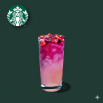In California, the Environmental Law Foundation (ELF) filed a lawsuit against some of the nation's largest baby food manufacturers in regards to their labeling practices. The trial began on Monday in Alameda County Superior Court in Oakland, according to ABC News.
The lawsuit argues, that, according to Proposition 65, baby food companies such as Gerber Products Co., Del Monte Foods and Beech-Nut Nutrition Corp., must label their products, warning consumers that their foods contain lead.
The foods and liquids in question are carrots, peaches, pears, sweet potatoes, grape juice and fruit cocktail. All of them contain some amount of lead.
Lawyers for the food companies say the U.S. Food and Drug Administration have tested the alleged products and found that the amount lead present, is below the levels required for a label. They also argued the lead found in the food is naturally occurring.
"Despite the trace amounts of lead in the products at issue, the federal government has determined that Americans need to eat more - not less - of these nutritious foods," defense attorney, Michele Corash, wrote in court documents.
The FDA also tested the food and agrees with the defense.
They found that the levels are "below the FDA's current tolerable intake levels for lead," according to ABC.
Corash was sure to cite the FDA findings in court documents as well.
"FDA recently reiterated its conclusion that the trace levels of lead in the products at issue in this case do not pose unacceptable health risks."
Although both the FDA and USFDA heir on the side of the food companies, one of ELF's lawyers, Jim Wheaton, still disagrees with their findings. He pointed to a portion of Proposition 65, which says that foods must be labeled, even if a toxin is at 1/1000th of the level considered dangerous to human health.
"Even when studying the low level of exposure that is typical in the dietary context, scientists have not been able to identify a level of exposure that is without any health risks," the plaintiffs wrote.
"Everyone assumes that a company selling foods for children will never offer a product for sale that carries a warning label," Wheaton said. "They will take the steps their competitors apparently already are taking to offer product with no lead or so low no warning is required."
© copyright 2024 Food World News, a property of HNGN Inc. All rights reserved. Use of this website constitutes acceptance of our terms and conditions of use and privacy policy.









